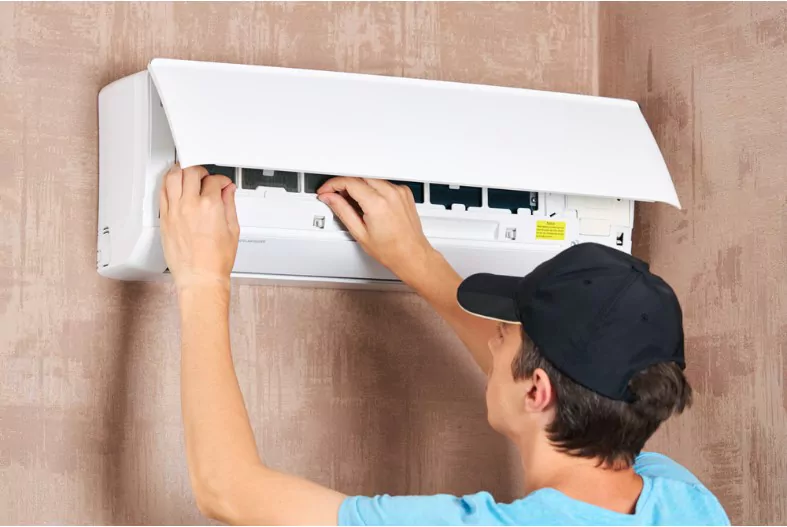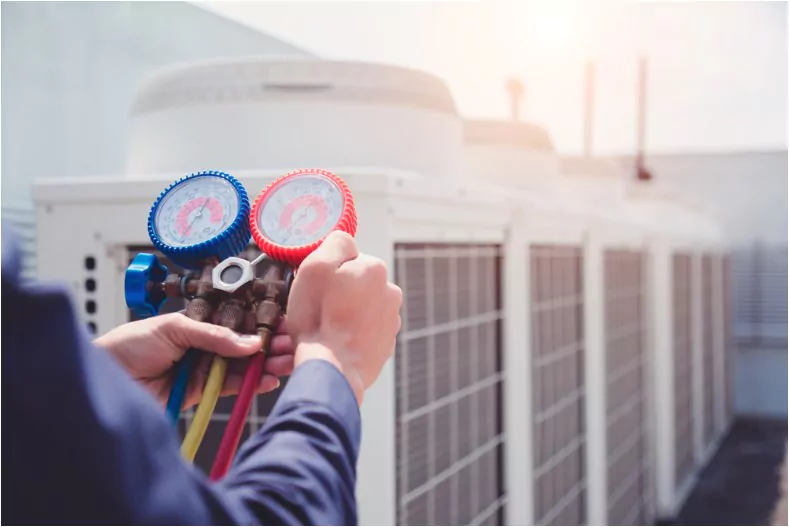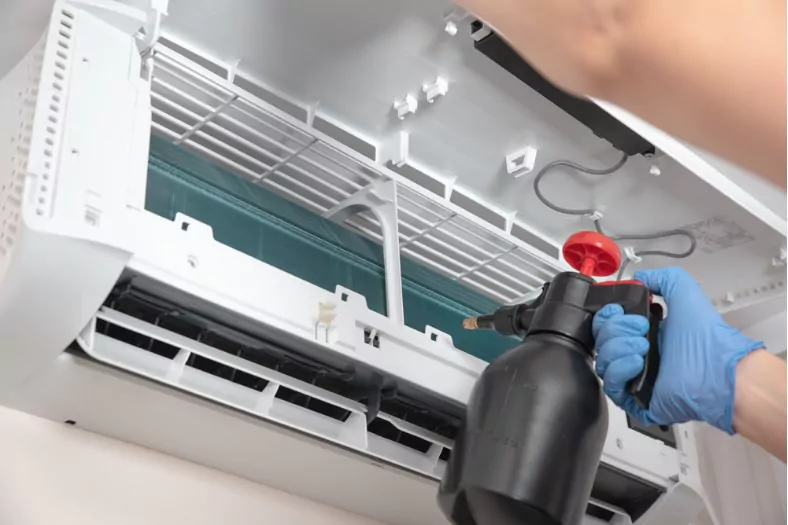How Do I Know When To Replace My AC? Expert Tips

Air conditioners have transformed the way we live, especially during extreme temperatures. They ensure our homes remain an oasis of cool air during scorching summer seasons, making warmer weather bearable. But like all machines, air conditioning systems have a life expectancy, and there comes a point when homeowners tend to ask How do I know when to replace my AC?
- Understanding the Basics of Air conditioning system
- Signs That It's Time to Consider Air Conditioning Replacement
- Age of Your Air conditioning units
- Increasing Energy Bills
- Frequent Air Conditioner Repairs and Breakdowns
- Inconsistent Temperatures and Poor Airflow
- Strange Noises and Sounds
- Usage of Outdated Refrigerants
- Advanced Technology and Smart Integration
- Frequent Cycles and Inefficient Cooling
- Signs of Moisture or Refrigerant Leak
- Cost Considerations
- The Seasonal Energy Efficiency Ratio (SEER)
- Technical Aspects to Consider
- Timing and Other Factors
- Wrapping Up
1 Understanding the Basics of Air conditioning system

Before diving into the intricacies, it’s essential to understand the basic components of an air conditioning system:
- Air Conditioning Unit (or AC Unit): This is the primary device that facilitates the cooling of your indoor environment.
- AC System: Refers to the whole setup, including the AC unit, the ductwork, thermostats, and other components.
- HVAC System: This is a broader term that encompasses heating, ventilation, and air conditioning.
2 Signs That It's Time to Consider Air Conditioning Replacement

Age of Your Air conditioning units
Most AC units, including central air conditioners, have an average lifespan of 10-15 years. Even with proper maintenance, older air conditioners will start to degrade in performance over time. The current system you’re using, if over a decade old, may not be as energy-efficient as the newer models, leading to higher energy bills.
Increasing Energy Bills
If you notice a sudden spike in your energy bill, your AC unit may not be operating at its peak energy efficiency. New air conditioners or AC systems with advanced technology are designed to consume less energy, translating to significant energy savings.
Frequent Air Conditioner Repairs and Breakdowns
If your air conditioning unit requires frequent repairs, it might be more cost-effective to invest in a new unit. Regular maintenance is expected, but if you’re constantly grappling with significant repair costs, such as a broken compressor or refrigerant leak, replacing your air conditioner might be the best option.
Inconsistent Temperatures and Poor Airflow
Warm air or poor airflow could signal problems like a faulty compressor or clogged air filter. While an air filter is easily replaceable, issues like poor airflow even after addressing such concerns indicate deeper problems. If cold air isn’t coming, or there’s a significant decrease in the airflow, consider checking the entire cooling system.
Strange Noises and Sounds
Modern air conditioning units are designed to operate quietly. If your AC starts making strange noises or you hear frequent breakdowns, it’s an alarming sign. Grinding, squealing, or other strange sounds often hint at underlying issues that might warrant an air conditioning replacement.
Usage of Outdated Refrigerants
Older system models might be using refrigerants that are being phased out due to environmental concerns. For instance, if your AC uses R-22 refrigerant, you’ll find that it’s becoming more expensive and harder to find because of environmental regulations. A new AC system will operate on more eco-friendly refrigerant, ensuring better energy efficiency.
Advanced Technology and Smart Integration
Newer models of AC units come equipped with advanced technology such as smart thermostats. These not only enhance the comfort of your home but can also provide energy-efficient cooling, which reflects on your energy bills. If your current AC lacks these modern features, it might be time for an upgrade.
Frequent Cycles and Inefficient Cooling
An AC unit that’s in good condition will have consistent cycles regardless of the summer season’s intensity. However, frequent cycles or the AC system struggling to maintain cooler temperatures can indicate the need for a tune-up or a replacement.
Signs of Moisture or Refrigerant Leak
Noticeable leaks around your air conditioner unit, especially refrigerant leaks, can pose a health risk. While water pools might indicate a blocked or broken tube, anything beyond such minor issues requires immediate attention.
Cost Considerations
Evaluate the cost of repair or replacement. In most scenarios, if the repair cost of your current unit is more than half the price of a new system, investing in a new HVAC system is a more cost-efficient choice.
The Seasonal Energy Efficiency Ratio (SEER)
The SEER rating provides insight into how energy efficient an air conditioner is. Older units might have a lower SEER, meaning they consume more energy. Upgrading to a new air conditioner with a higher SEER will ensure more efficient cooling and reduced cooling costs.
3 Technical Aspects to Consider
- SEER Rating (Seasonal Energy Efficiency Ratio): New air conditioner models come with a SEER rating that tells you about their energy efficiency. Modern units tend to have higher SEER ratings, meaning they use less energy, thus saving on cooling costs.
- Refrigerant Type: Older AC units use refrigerants that are now considered environmental hazards and are being phased out. A refrigerant leak in such a unit not only increases repair costs but can also pose a health risk.
- Condenser Coils and Components: These are vital for the cooling process. A malfunctioning or broken condenser can be expensive to replace.
4 Timing and Other Factors
- Summer Season Approaching?: If you’re heading into warmer weather and have faced AC problems recently, it’s wise to assess your current system’s condition.
- The Repair or Replacement Dilemma: As a rule of thumb, if the repair cost is more than half the price of a new unit and your current AC is more than ten years old, replacement might be the best option.
- Properly Maintained but Still Troublesome?: Even a properly maintained AC system can wear out. If you’re facing issues despite regular maintenance, consider an AC replacement.
- Advanced Technology Upgrades: The market has seen a surge in energy-efficient models with features like smart thermostats. A new HVAC system with these features can significantly increase energy savings.
5 Wrapping Up
In conclusion, understanding when to replace your ac unit is crucial for maintaining a comfortable indoor environment and ensuring cost-efficient energy consumption. A combination of the unit’s age, performance, and frequency of repairs will provide a clear answer to the question, How do I know when to replace my AC?
Remember, proper maintenance can extend the life of your AC, but there will inevitably come a time when a new AC becomes a necessity. Ensure regular check-ups, especially before warmer weather sets in, to ensure your air conditioning system serves you optimally. Invest wisely, and you can enjoy the cool air without the hassle of frequent breakdowns or sky-high energy bills.
Community Q&A
About This Article
This article has been viewed 430 times.



